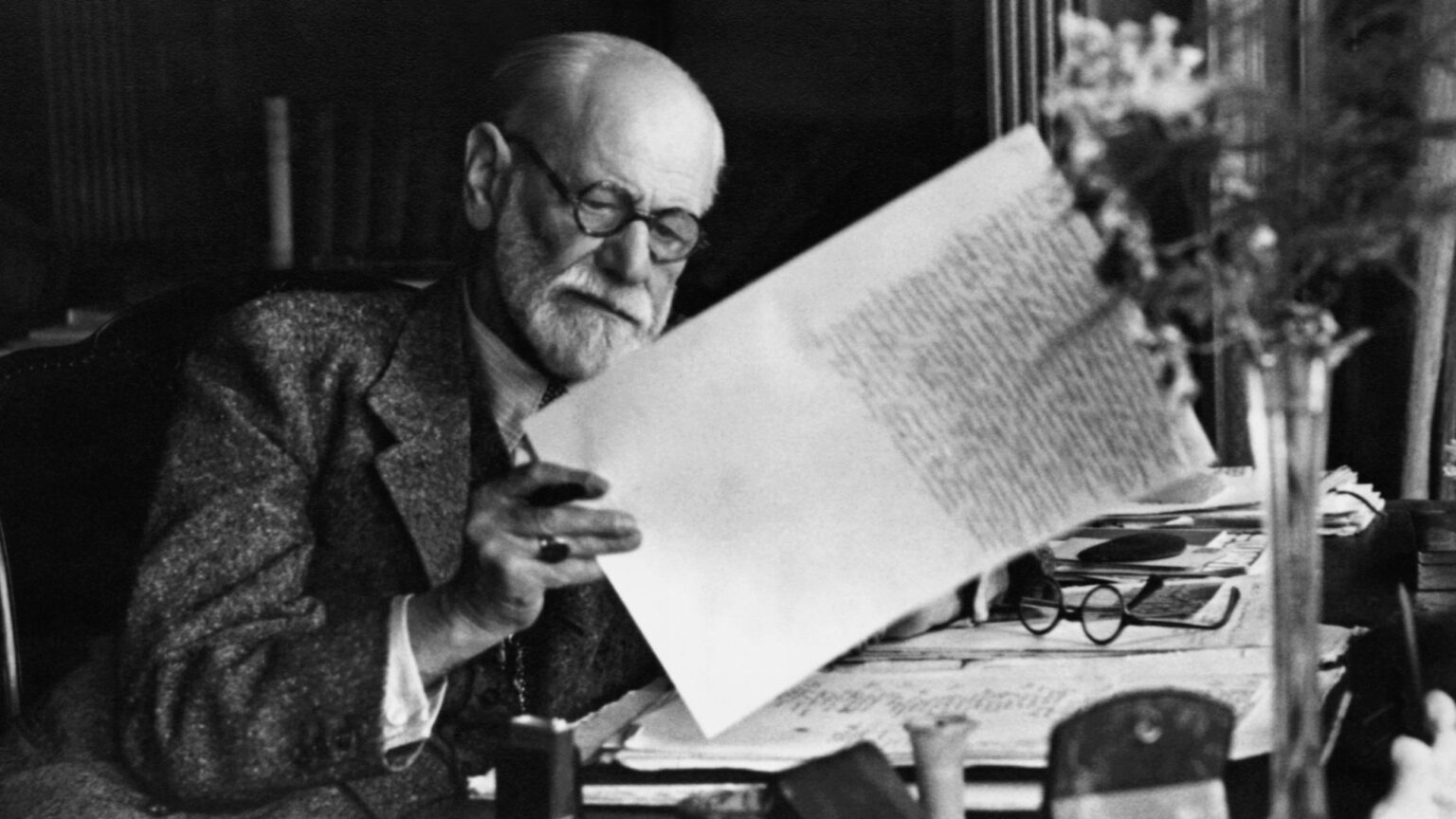This article is the written script of an episode from our podcast series: Kandelaa – Conversations.
( Bu yazı, podcast serimiz Kandelaa – Conversations’tan alınan bir bölümün yazılı metnidir.)
In 1911, Sigmund Freud conceptualized three different agents as a part of the psychoanalytic theory to enlighten human psychology further. Having behavioral influences on an individual, the roles and effects of these formations cause either a conflict or negation in mental status. These so-called and well-known concepts are the id, ego, and superego.
Following Freud’s statement, the id is the primitive self that is led by instinctive drives and external impulses. They can be contrasting, but still do not eliminate each other. No logic to be found in it; one absolute aim of the id is to reach pleasure and satisfaction at all costs. Nevertheless, the id can be refrained and controlled at a level, which would be ensured in parallel with the judgment of the superego that, in turn, reflects on the ego’s negation.
The id can be clearly observed in infant behavior, in which a baby instinctually applies to crying and insistence to appease its needs – be hunger or discomfort. Although seen as disputable for attributing to children, sexual desire is one of the examples mentioned in the drives other than aggression. This tendency is the only pertinent way for an infant to be content with the demands of the primitive self. In the following episodes of development, another branch stems from the id: the ego. e
The ego would handle the id’s desires rather than implicitly serving its insatiable nature. The guidance for the ego is brought about by the sense of reality and the external world, but the superego influences its manner as well. Ego is a mediator between these two conflicting agents; it considers the claims of both for assuring the long-term benefit and content. Freud depicts the correlation between the id and ego by the driver-horse metaphor, concerning which the ego is liable for controlling the horse by conducting it to the right path. In case the horseman gives up the guidance, however, the horse starts to act in a completely independent manner, which – in a hypothetical sense – outlines the interaction of these concepts.
The superego is the ultimate judge that seeks excellence and morality in decisions, also described as a state (?) of conscience. This phase of perception develops the last, but still carries an impact of the early life models – primarily parents. Such figures may be varied into mentors or idols in the further parts of life. Nonetheless, the formation of the sense of right and wrong improves a good deal by society itself. What is found immoral or tolerable points out to judgmental values of a community, so is highly dependent on people as a whole. The superego takes its reference from that source; it would claim that the wants of the id are suppressed if they contrast with virtue and right. Ego, in such conditions, is to build the bridge between them for the sake of balance and general gratification. If the id demands to supply pleasure as opposed to social norms or morale, the superego would ring the bell of self-reproach, shame, and guilt; whereas the ego would come to suggest another solution that is relatively innocent yet still fulfilling.
Even though Freud’s studies contributed to our grasp of psychological studies, there are rigid disagreements with his opinions. Carl Jung, who was once a student of him, denoted his refusal of the differentiation between the ego and superego. Jung also believed that the concept of “unconsciousness” should have been elaborated more than only being mentioned as the id. Various other terms and schools were developed to offer amendments. Furthermore, another term stated in the psychoanalytic theory, the Oedipus Complex, received criticism due to its sexual attributions and perception. The condition emphasized the gender affections, alongside a child’s sexually-determined orientation towards parents. The Oedipus Complex was, according to Freud, one of the greatest social achievements one can give. The hero of the phenomena was, for sure, the superego that is responsible for promoting what is true.
It nonetheless attracted disputes, because using the words “children” and “sexual attraction” should have firstly evoked questions of any sexual harassment toward a child- let alone the bizarre orientations. Additionally, it remained invalid for some domestic situations and was not experimentally proven.
Everything aside, the ideas and studies of Freud have been taken into account, by making him one of the most influential professionals in his discipline.
to conceptualize (v) : kavramsallaştırmak
agent (n) : ajan, faktör, eleman, vekil
psychoanalytic (adj) : psikoanaliz ile ilgili
conflict (n) : çatışma
negation (n) : anlaşma, arabulma
primitive (adj) : ilkel
instinctive (adj) : iç güdüsel
to eliminate (v) : ortadan kaldırmak, elemek
to contrast (v) : ters düşmek
aim (n) : amaç
satisfaction (n) : tatmin
to depict (v) : betimlemek
to stem from (v) -dan kök salmak
immoral (adj) : ahlak / etik dışı
to denote (v) : belirtmek
amendment (n) : iyileştirme, ıslah etme, değiştirme
nonetheless (con) : buna rağmen, ne var ki
tendency (n) : yönelim
attribution (n): dayandırma, atıf
perception (n): algı
let alone (exp) : …. bir yana
invalid (adj) : geçersiz
orientation (n): yönelim, uyum sağlama, alışma
elaborated (adj) : detaylandırılmış
discomfort (n) : rahatsızlık
refrained (adj) : frenlenmiş, engellenmiş
in parallel with (prep) : -a paralel olarak
condition (n): durum, şart
according to (prep): -a göre
experimentally (adv): deneysel olarak
tolerable (adj): hoş görülebilir
for the sake of (prep) : uğruna, hatrı için
excellence (n) : mükemmellik
judge (n) : yargıç
to evoke (v) : uyandırmak

